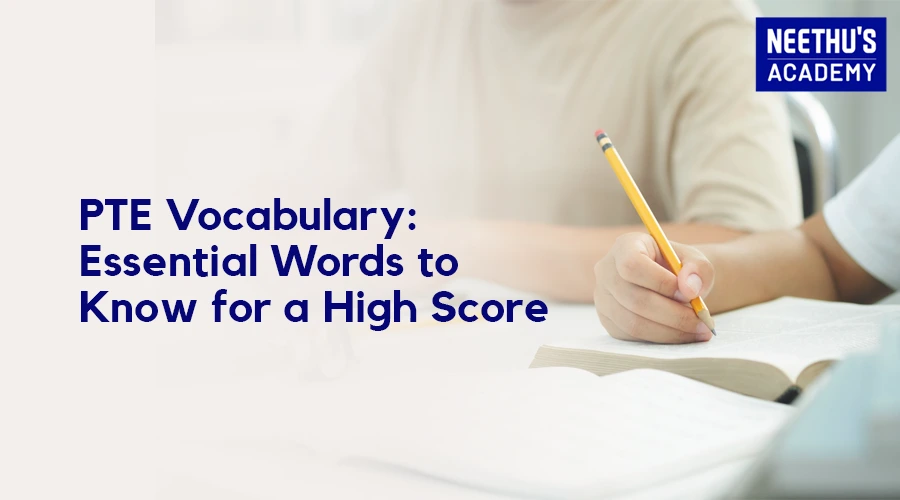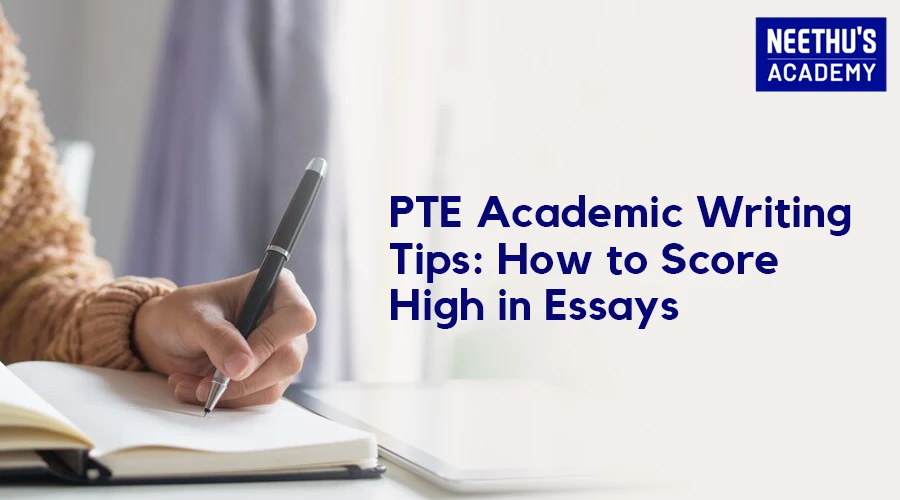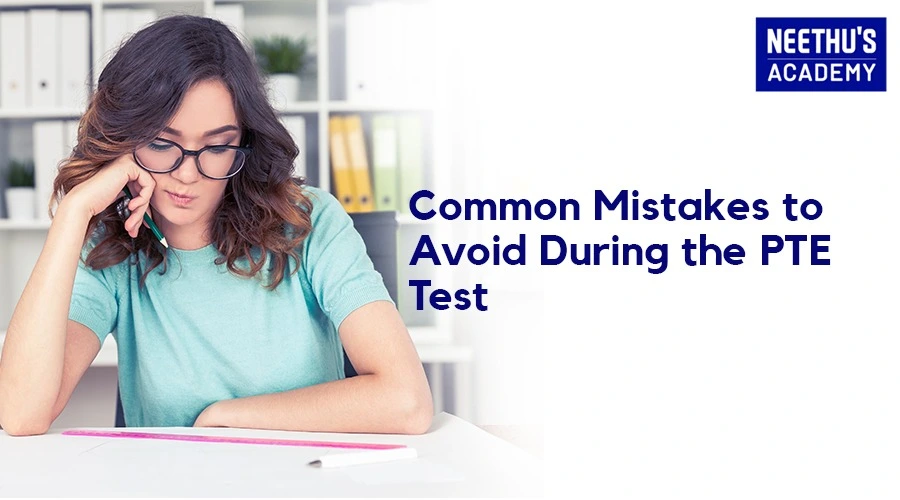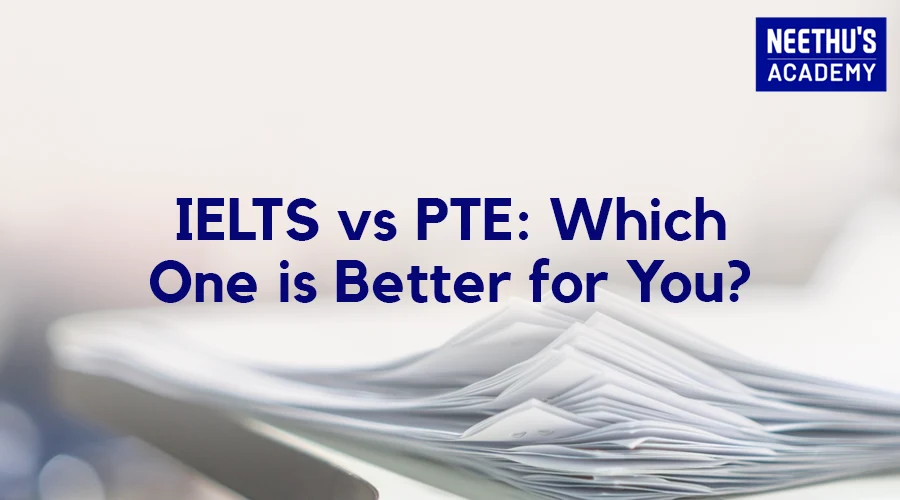PTE Vocabulary: Essential Words to Know for a High Score
The prerequisite for achieving a high score on the PTE, or the Pearson Test of English, is having a robust vocabulary. Vocabulary impacts every section of the PTE exam, so it’s going to make a direct difference in your performance regarding reading, writing, listening, and speaking. It can make a huge difference if you build an essential and high-frequency vocabulary commonly seen on the test. We will cover the important words that you must know, some practical tips for vocabulary building, common mistakes to avoid, and how professional coaching can help you do well in the PTE exam.
Why Vocabulary is Key to a High PTE Score
Understanding the Role of Vocabulary in PTE
Vocabulary plays an important role in the PTE exam, enabling a candidate to understand academic content, respond appropriately, and even convey ideas fluently. A good vocabulary helps you to read, listen, speak, and write coherently. You will grasp what is asked of you to do and respond to complicated questions easily. You also construct grammatically coherent sentences. It also enables you to catch subtleties in reading texts or audio portions, which will be needed to achieve a higher score.
Common Vocabulary Challenges in PTE
This is one of the biggest vocabulary problems most candidates face while sitting for PTE; vast number of academic and formal words. Most of the passages used in PTE carry highly advanced subject-specific terminology that will not be known to many candidates. Deviation of terms can provide incorrect answers or miscommunication. For example, not knowing the difference between words such as implies and infer, affect and effect, and other basic words matters towards both understanding and accuracy. Hence, vocabulary must be mastered with proper study.
Essential PTE Vocabulary and High-Frequency Words
High-Frequency Words for PTE
High-frequency words are those frequently used in an academic context. It is therefore very important to use these high-frequency words in PTE preparation. Some examples of high-frequency words include analyze, summarize, interpret, derive, significance, and evaluate. Most times, these words occur in the reading and listening sections; mastering them will help you understand the academic content much faster.
Here are some examples of high-frequency words that might frequently appear in your PTE:
Analyze – to examine in detail
Context- The circumstances or background of an event
Indicate- To point out or show
Significant- Important or noteworthy
Consist- To be made up or composed of
Focus on these words by answering questions more accurately. Put them in your active vocabulary by using them in sentences and becoming aware of their usage in sample reading passages.
Academic Vocabulary for Reading and Listening Sections
It is often characterized by vocabulary particular to a science, technology, humanities, or social sciences field. Students may find an academic vocabulary, consisting of terms such as hypothesis, trend, inference, and interpretation, useful to commit to memory. Here is a short list of most common academic terms encountered in reading and listening passages:
Inference – a conclusion drawn from evidence
Variable-that changes or to which a change can be made in a test experiment
Evidence-in favor of some kind of conclusion
Trend: any general direction that something is taking.
Principle: a fundamental truth or basis.
The proper use of the words will help you better understand information as well as be able to answer questions rationally.
Commonly Confused Words to Know
Some words in English are spelled or sound similar but have very distinct meanings. Using a word incorrectly can lead to an important misunderstanding. Here are some examples:
Affect vs. Effect: Affect is often a verb that means “to influence,” whereas effect is a noun that means “a result.”
Principal vs. Principle: Principal refers to someone who is placed in a position of authority or the thing of first importance. On the other hand, principle is a fundamental truth or law.
Compliment vs. Complement: Compliment means praise and Complement means to enhance. Using these words correctly can strengthen your clarity and avoid errors, particularly in speaking and writing activities where accuracy counts.
Word Families and Synonyms
Knowing word families and synonyms can help you expand your vocabulary much more efficiently. A word family is a group of words coming from the same root word. For instance, the word family for analyze would include analysis, analytical, and analyzer. Knowing word families enables you to alter a root word for purposes such as different contexts and tasks.
synonyms allow you to express the same thoughts in other words. This can make your answers even more eloquent. For example,
Big: large, enormous, considerable
Small: tiny, minute, minuscule
Important: significant, vital, crucial
Effective use of synonyms will help you add richness and variety to your vocabulary, particularly in the essay and speaking activities.
Practical Tips to Improve PTE Vocabulary
Daily Word Practice
To develop a good vocabulary, establish a regular time and place for your practice. In this time and space, take a few minutes to identify new words; then, formulate sentences to recall previously memorized words. You can keep vocabulary cards or flashcards to monitor your progress.
Use Contextual Study Techniques
Vocabularies learned in context are much better retained and understood. When you face a new word, try to guess its meaning by reading the whole sentence or passage. In this way, you get some clues on what the word means and how to make use of it effectively. Reading academic articles, listening to educational podcasts, and watching documentaries will ensure that you get an encounter with vocabularies in their real-world contexts.
Do Vocabulary-Building Exercises
Practice exercises to build your vocabulary. Support your learning with apps like Quizlet or Anki using flashcards or quizzes to review and refine your vocabulary knowledge. Do matching exercises for synonyms, fill-in-the-blank, and sentence completion because these activities help drill meaning, usage, and spelling.
Common Mistakes in PTE Vocabulary Preparation
Focusing on Memorization Alone
While rote memorization of word lists is useful, overemphasizing memorization will limit your ability to use words. Instead, study word meanings and how to use them. Try using every word in different sentences or contexts to enhance your learning.
Omitting Academic and Formal Vocabulary
Formal and academic vocabulary plays a highly significant role in the PTE. Don’t limit your vocabulary to only colloquial words. Learn more about formal words, which regularly happen in academic texts and research papers that frequently appear in PTE’s reading and listening components.
Not Reviewing Vocabulary Frequently
Periodic review is the only means by which you can retain memory. Otherwise, you might start forgetting the words you memorize. Make time every week to review the words in your vocabulary list. write sentences with as many of them as possible, or read sample passages and try to identify the meanings of as many words as possible.
How Professional Coaching Can Support Vocabulary Building
Vocabulary-building skills can be transferred to most English proficiency tests, like IELTS, TOEFL, and OET. Many vocabulary words presented in the PTE are the same as those in other tests; hence, your efforts for preparing for a test can be fruitful for all the tests. Thus, well-developed vocabulary skills are helpful both in academics and professional communication everywhere in the world.
Best Coaching Center in Kerala
Neethu’s Academy is one of the best coaching centers in Kerala. Their services provide PTE vocabulary coaching to ensure that every candidate is prepared to achieve their desired PTE goals and serve them well in other undertakings, too.
Conclusion
PTE requires a better vocabulary for success. This goes on to include high-frequency words, academic vocabulary, and other words that you would often confuse so that you can tackle each section of PTE. Daily practice, contextual learning, and professional coaching improve your vocabulary and assures you a good score. Remember, vocabulary practice prepares you for the future—while mastering relevant words, strengthening your overall English proficiency, and acing the PTE exam.
Frequently Asked Questions





